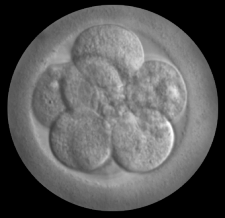Screening Embryos for IQ and Other Complex Traits is Premature, Study Concludes
By Jocelyn Kaiser,
Science
| 10. 24. 2019
Two years ago, news headlines began to appear about a development that made many human geneticists uneasy. A U.S. company planned to offer a test for embryos created through in vitro fertilization (IVF) that screened the entire genome for DNA variants linked to cognitive ability, in order to help couples avoid having children with intellectual impairment. Many ethicists fear such multigene analyses could one day be used to screen embryos for desirable traits as well, such as tall stature or high IQ.
For those disturbed by the prospect, a study reported here last week at the annual meeting of the American Society of Human Genetics (ASHG) may come as a relief: For now, the strategy would not work very well.
Researchers, led by statistical geneticist Shai Carmi of the Hebrew University of Jerusalem, calculated exactly how much of a boost in IQ or height could be expected by scanning for relevant DNA markers in a batch of embryos and choosing those with the highest scores. The result: The gains would be slight, and prospective parents might even end up discarding...
Related Articles
By Scott Solomon, The MIT Press Reader | 02.12.2026
Chris Mason is a man in a hurry.
“Sometimes walking from the subway to the lab takes too long, so I’ll start running,” he told me over breakfast at a bistro near his home in Brooklyn on a crisp...
By Diaa Hadid and Shweta Desai, NPR | 01.29.2026
MUMBRA, India — The afternoon sun shines on the woman in a commuter-town café, highlighting her almond-shaped eyes and pale skin, a look often sought after by couples who need an egg to have a baby.
"I have good eggs,"...
By George Janes, BioNews | 01.12.2026
A heart attack patient has become the first person to be treated in a clinical trial of an experimental gene therapy, which aims to strengthen blood vessels after coronary bypass surgery.
Coronary artery bypass surgery is performed to treat...
By Staff, ScienceDaily | 01.05.2026
Scientists at UNSW Sydney have developed a new form of CRISPR technology that could make gene therapy safer while also resolving a decades-long debate about how genes are switched off. The research shows that small chemical markers attached to DNA
...




